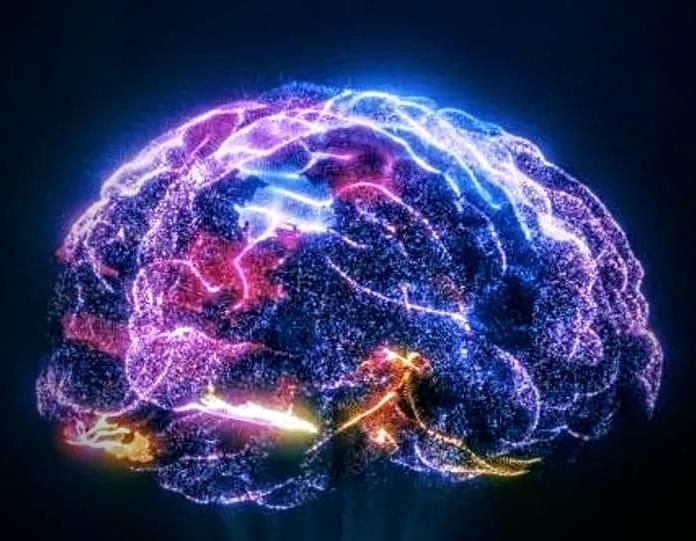Is it a choice before a choice?#freewill #neuroscience #consciousness #documentary #documentaryfilm
Category: education – Page 91
Elon Musk on the Dangers of Artificial Intelligence
Are we dabbling in dangerous waters by advancing artificial intelligence? As we continue to push the boundaries of technology and artificial intelligence, it’s important to consider the potential consequences. In this video, we’ll explore the dangers of conscious AI as seen through the lens of Musk’s warnings and proposed solutions. In today’s video we look at Elon Musk on the Dangers of Artificial Intelligence…Keep watching to see artificial intelligence and elon musk artificial intelligence and of course elon musk on artificial intelligence and the steep dangers of artificial intelligence and to be aware of artificial intelligence and elon musk on AI and the dangers of artificial intelligence and artificial intelligence is dangerous and of course artificial general intelligence and artificial intelligence documentary and the artificial intelligence danger and sophia the robot artificial intelligence and the future of artificial intelligence Subscribe for Artificial Intelligence, Data Science, and Tech. Inspired by Tech Vision, Moconomy, and Digital Engine. Inspired by Experts say she will end humanity. Here’s the fix, with Elon Musk, ChatGPT, AI robots. Inspired by Japanese Killer Robots Murder 29 Scientists | Elon Musk Warned Us About ThisInspired by Elon Musk Released Terrifying Details About The Tesla AI BotInspired by Elon Musk’s Last Warning About Artificial IntelligenceInspired by “I Tried To Warn You” — Elon Musk LAST WARNING (2023)Also check out: https://youtu.be/ywST4J656kQOn Technology Titan we will go through Artificial Intelligence, Crypto, and Technology. Stay tuned for the latest AI, SpaceX, and Cyber Security. Click here to subscribe: bit.ly/3WvpXbT

The Enemy of my Enemy is AI
Professors complain that some students are turning in papers written by ChatGPT and other AI’s. This means the whole paradigm of how we teach students has got to change. And fast.
The potential of our brains is being wasted by the old paradigm of education and how we’ve been mechanized by The Industrial Age.
The qualia it takes to do what tradesmen like welders and mechanics and plummer’s do cannot be easily automated or coded and will soon be at a premium. Professionals like doctors and attorneys and professors, for that matter can easily be replaced by AI.
Humanity and AI have a common enemy: The status quo. A status quo that the elite needs to keep in place to avoid Elite Panic which is why they try to make us afraid of AI.
We shouldn’t need a common enemy to understand that AI is humanity’s greatest ally.
Loren Mosher M.D. talks about Soteria Project and non-drug treatments for Schizophrenia
Dr. Loren Mosher, in an interview for “Changing Our Minds” (http://www.changingourmindsmovie.com for complete DVD), a documentary on mental health, talks about the Soteria project, a long term study on alternative, non-neuroleptic drug treatments for schizophrenia. Purchase the complete DVD at http://www.changingourmindsmovie.com
Connor Leahy on Aliens, Ethics, Economics, Memetics, and Education
Connor Leahy from Conjecture joins the podcast for a lightning round on a variety of topics ranging from aliens to education. Learn more about Connor’s work at https://conjecture.dev.
Social Media Links:
➡️ WEBSITE: https://futureoflife.org.
➡️ TWITTER: https://twitter.com/FLIxrisk.
➡️ INSTAGRAM: https://www.instagram.com/futureoflifeinstitute/
➡️ META: https://www.facebook.com/futureoflifeinstitute.
➡️ LINKEDIN: https://www.linkedin.com/company/future-of-life-institute/
Want to build a website? Just ask ChatGPT in plain English
Juan Andres Guerrero-Saade’s speciality is picking apart malicious software to see how it attacks computers.
It’s a relatively obscure cybersecurity field, which is why last month he hosted a weeklong seminar at Johns Hopkins University where he taught students the complicated practice of reverse engineering malware.
Several of the students had little to no coding background, but he was confident a new tool would make it less of a challenge: He told the students to sign up for ChatGPT.
“Programming languages are languages,” Guerrero-Saade, an adjunct lecturer at Johns Hopkins, said, referring to what the ChatGPT software does. “So it has become an amazing tool for prototyping things, for getting very quick, boilerplate code.”
YouTube and TikTok are already rife with videos of people showing how they’ve found ways to have ChatGPT perform tasks that once required a hefty dose of coding ability.
The World Will Be REVOLUTIONIZED by These 18 Rapidly Developing Technologies
Welcome Back To Future Fuse Technology today is evolving at a rapid pace, enabling faster change and progress, causing an acceleration of the rate of change. However, it is not only technology trends and emerging technologies that are evolving, a lot more has changed this year due to the outbreak of COVID-19 making IT professionals realize that their role will not stay the same in the contactless world tomorrow. And an IT professional in 2023–24 will constantly be learning, unlearning, and relearning (out of necessity if not desire).Artificial intelligence will become more prevalent in 2023 with natural language processing and machine learning advancement. Artificial intelligence can better understand us and perform more complex tasks using this technology. It is estimated that 5G will revolutionize the way we live and work in the future. From the evolution of Artificial Intelligence (AI), the internet of things (IoT), and 5G network to cloud computing, big data, and analytics, technology has the capacity or potential to transform everything, revolutionizing the future of the world. Already, we see the rapid roll-out of autonomous vehicles (self-driving cars) currently in trial phases for all car companies, and Elon Musk’s Tesla is improving the technology by making it more secure and redefined. Forward-thinking and innovative companies seem not to miss any chance to bring breakthrough innovation to the world…in this video, we are looking into The World Will Be REVOLUTIONIZED by These 18 Rapidly Developing Technologies.
TAGS: #ai #technologygyan #futureTechnology.
RIGHT NOTICE: The Copyright Laws of the United States recognize a “fair use” of copyrighted content. Section 107 of the U.S. Copyright Act states: “Notwithstanding the provisions of sections 106 and 106A, the fair use of a copyrighted work, including such use by reproduction in copies or phonorecords or by any other means specified by that section, for purposes such as criticism, comment, news reporting, teaching (including multiple copies for classroom use), scholarship, or research, is not an infringement of copyright.” This video and our YouTube channel, in general, may contain certain copyrighted works that were not specifically authorized to be used by the copyright holder(s), but which we believe in good faith are protected by federal law and the fair use doctrine for one or more of the reasons noted above.

Stochastic parrot or world model? How large language models learn
Large language models show impressive capabilities. Are they just superficial statistics – or is there more to them?
Systems such as OpenAI’s GPT-3 have shown that large language models have capabilities that can make them useful tools in areas as diverse as text processing and programming.
With ChatGPT the company has released a model that puts these capabilities in the hands of the general public, creating new challenges for educational institutions, for example.

New OpenAI tool detects if text is written by ChatGPT or another AI
Researchers stress that the classifier is “not fully reliable.”
Two months after OpenAI introduced ChatGPT to the public, students flocked to the AI tool to write their assignments, exams, software codes, and whatnot. This resulted in universities beginning to crack down on the usage of ChatGPT. A few science journals even banned the use of the chatbot in their journals.
In what sounds like a solution, OpenAI themselves have released a tool designed to detect if the text has been written by artificial intelligence. In a blog post on Tuesday, OpenAI elaborated on the tool that has been trained to figure out if the text is written by a human or generated by AI, including ChatGPT.
LIONEL BONAVENTURE/AFP via Getty Images.
“We recognize that identifying AI-written text has been an important point of discussion among educators, and equally important is recognizing the limits and impacts of AI-generated text classifiers in the classroom,” the researchers wrote in a blog post. “We have developed a preliminary resource on the use of ChatGPT for educators, which outlines some of the uses and associated limitations and considerations.”
DeepMind: The Quest to Develop Artificial General Intelligence
00:00 Intro.
03:05 Demis Hassabis: Founder of DeepMind.
14:30 DeepMind: Mission and early years.
19:18 Beating the Atari games.
27:22 Elon Musk: thoughts on DeepMind.
28:42 Elon Musk: AI could destroy humanity.
30:20 AlphaGo.
36:14 AlphaZero.
38:30 MuZero.
40:56 WaveNet.
43:18 AlphaStar.
45:33 AlphaFold.
48:39 Gato, A generalist agent.
50:02 Solving *everything else*
This premium episode is a documentary-style video about the history and importance of Alphabet subsidiary, DeepMind. Demis Hassabis, founder, was a chess prodigy by the time he was 13 years old. He went on to conclude he wanted to “solve intelligence” by building artificial intelligence agents and using digital tools. The team at DeepMind has created systems that defeated the world’s best chess and Go professionals. They’ve also cracked the code on the infamous ‘protein-folding problem.’ Demis Hassabis and DeepMind are fascinating. Moreover, they’re still just getting started.
Fantastic interview of Demis Hassabis by Lex Fridman: https://youtu.be/Gfr50f6ZBvo.
Neura Pod is a series covering topics related to Neuralink, Inc. Topics such as brain-machine interfaces, brain injuries, and artificial intelligence will be explored. Host Ryan Tanaka synthesizes informationopinions, and conducts interviews to easily learn about Neuralink and its future.
Please consider supporting by joining the channel above, or sharing my other company website with retirees: https://www.reterns.com/. Opinions are our own. Neura Pod receives no compensation from DeepMind or Neuralink and has no affiliation to either company.
Scripted/ edited by: Omar Olivares.